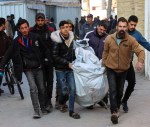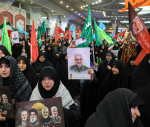You are here
Missed opportunity
Oct 01,2015 - Last updated at Oct 01,2015
There is no doubt that the first historic visit by Argentinean-born Pope Francis to the United States that ended last Sunday warmly engulfed Americans during his six days in Washington, New York and Philadelphia.
His pronouncements were greeted by thousands, at one point a million, loudly and repeatedly, even when spoken before the joint session of the US Congress.
It remains to be seen whether any of his pronouncements will change opinion among congressmen, the American media or the public.
One news story about his address in Philadelphia noted that “Pope Francis dove into some of the United States’ thorniest political debaters during his historic visit by urging the world’s wealthiest nation to welcome immigrants, to end homelessness and do more to address climate change”.
In his address at the UN General Assembly, reported The New York Times last Saturday, the Pope “rebuked particularly those charged with the conduct of international affairs” for having failed to put an end to the many conflicts in the world, particularly the Middle East.
He underlined: “Real human beings take precedence over partisan interests, however legitimate the latter may be.”
The paper said that his statement “appeared to be a specific reference to the conflicts in Syria and Iraq where the people have faced the alternative either of fleeing or of paying for their adhesions to good and to peace by their own lives, or by enslavement”.
What has been also sorely missing from any of the Pope’s public statements was the golden opportunity to emphasise how the warfare in the Holy Land continues because Israel now illegally controls the Palestinian West Bank, an area that is less than 20 per cent of the original state of Palestine.
More dramatically, the West Bank is actually less than half the area that was originally allotted to the Palestinians in accordance with the infamous UN Partition Plan, which awarded Israel 55 per cent of Palestine.
The stalemate has contributed to a new pessimistic view that a majority of Palestinians no longer support a two-state solution.
A poll by a prominent West Bank-based Palestine Centre for Policy and Survey Research found that 51 per cent of Palestinians oppose the two-state solution and only 48 per cent support it.
The survey was carried out on 1,270 people in the occupied West Bank and in Gaza between September 17 and 19 and the result was attributed by the centre’s president, Khalil Shikaki, to the sinking popularity of Palestinian President Mahmoud Abbas and a feeling among Palestinians that the Arab governments no longer care about the fate of the Palestinians.
Furthermore there is an indication of growing support for a return to armed resistance against Israel’s presence in the occupied Palestinian territories.
Armed clashes have been going on between Israelis and Palestinians within Jerusalem’s Noble Sanctuary, which houses Al Aqsa Mosque, the third holiest place from where Muslims believe Prophet Mohammad ascended to heaven.
The compound, known as Temple Mount to the Jews, is the alleged site of two biblical Jewish temples.
Also absent is a serious and unified international focus on the region that is now witnessing bloody conflicts in Syria and Iraq, from where tens of thousands are fleeing to Europe, creating a serious refugee crisis.
The conflict that surfaced at the opening session of the UN General Assembly this week in what was described as duelling speeches of US President Barack Obama and Russian President Vladimir Putin over how to settle the crisis in Syria and bring stability to the Middle East was another troubling development.
Whatever the two leaders agreed on later, during their private meeting, remains unclear, except for the unprecedented Russian involvement in Syria.
This step underlines the failure of the Obama administration to work towards making peace in the Middle East.
As far as the Palestinian-Israeli conflict goes, the chance of a peaceful settlement remains dependent on the willingness of the Israeli government to pull back from the occupied Palestinian territories, a step that needs a clear American endorsement.
The writer is a Washington-based columnist.













